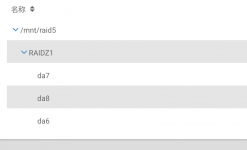How can I test the real read-write speed of the disk without using memory acceleration? I used the dd command to test the data and the read was 8000MB/s and the write was 4000MB/s. This is clearly the role of memory as cache, not the true read-write speed of the hard disk!
-
Important Announcement for the TrueNAS Community.
The TrueNAS Community has now been moved. This forum has become READ-ONLY for historical purposes. Please feel free to join us on the new TrueNAS Community Forums
The issue of testing the actual read/write speed of a hard drive!
- Thread starter dengruxi
- Start date



